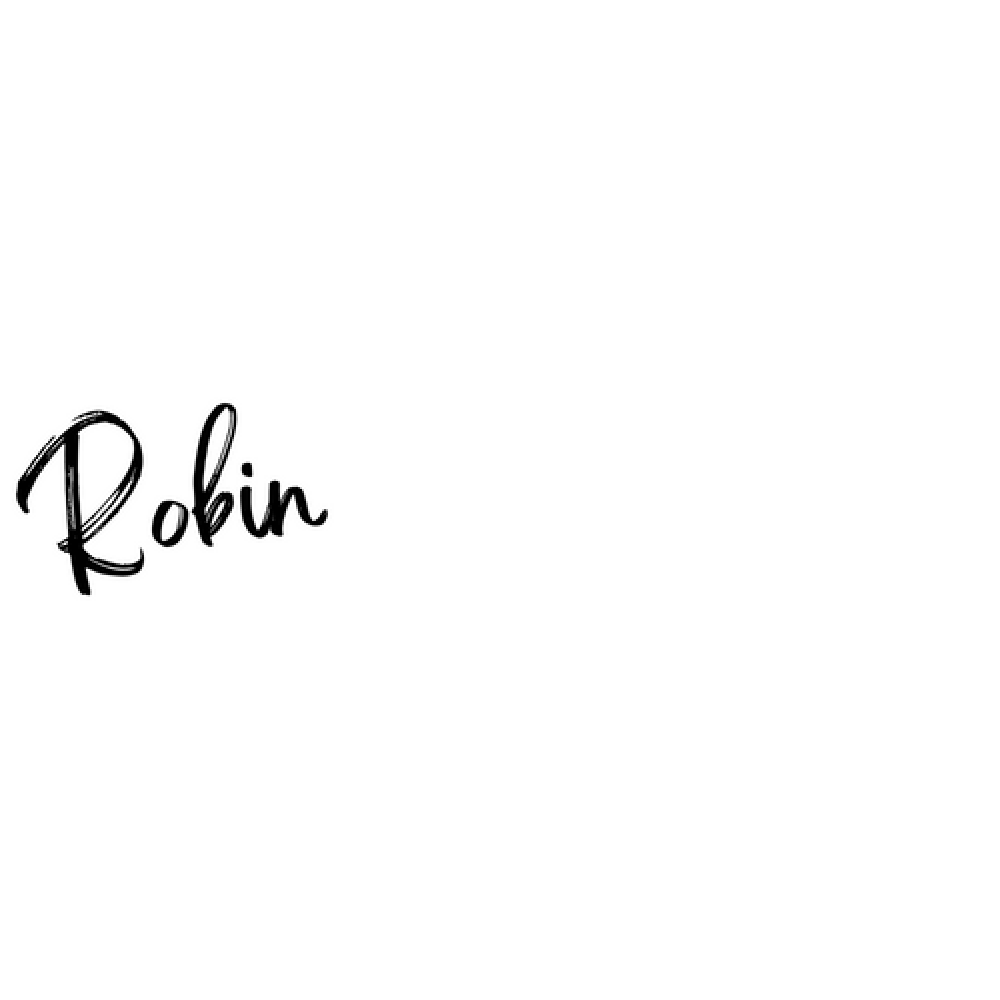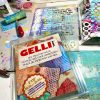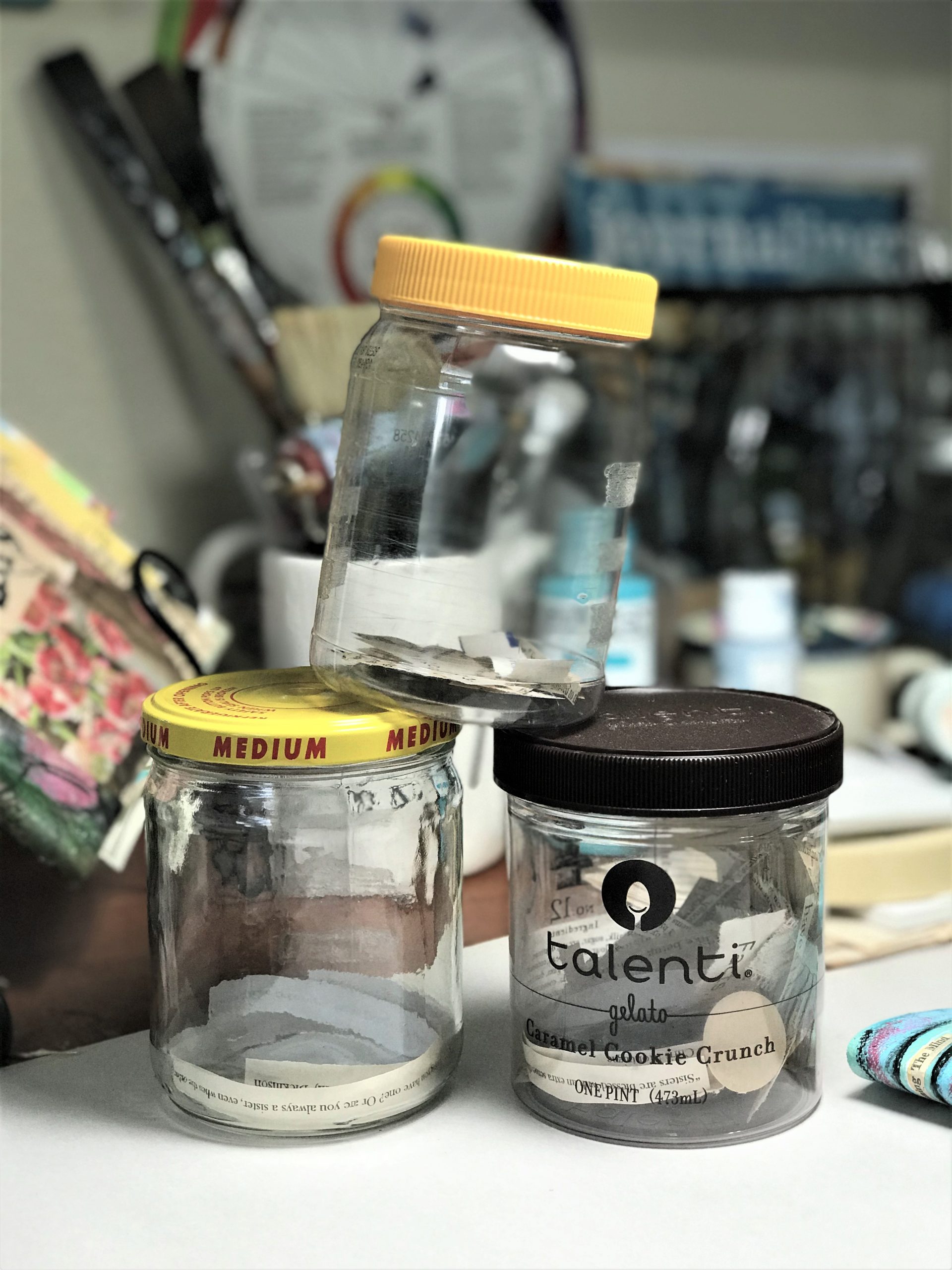Using ‘Found Words’ to Tell Short Stories

Do you use ‘found words’ to tell stories or write creatively? A friend and I were talking about making creative journals and writing (or not) in them. She said she loves to make creative journals, but doesn’t write in them. I told her I don’t write in mine either…. at least not in the pen-to-paper sense.
Instead, I ‘write’ in my creative journals using ‘found words’ – sometimes called ‘word bits’ or ‘word crumbs’ by fellow writers and artists. I like to tell stories in the shortest form possible – usually with six or fewer words, leaving the reader to interpret from his/her own experiences.
Life Story© journals & Found Word journaling bundles help tell short stories
I like inspiring others to tell their stories, too. I want people everywhere to tell their stories one “found word” at a time – with as many or as few words that fit. In fact, I began creating original journals and curated journaling supply “Bit Kits” in 2019 to nudge other’s thinking, feeling, and remembering. They are quite popular with their color and narratives. And… the smaller I make them, the more popular they are with Etsy customers and Instagram followers. People love itty-bitty journals! Here’s what Etsy customers have said….
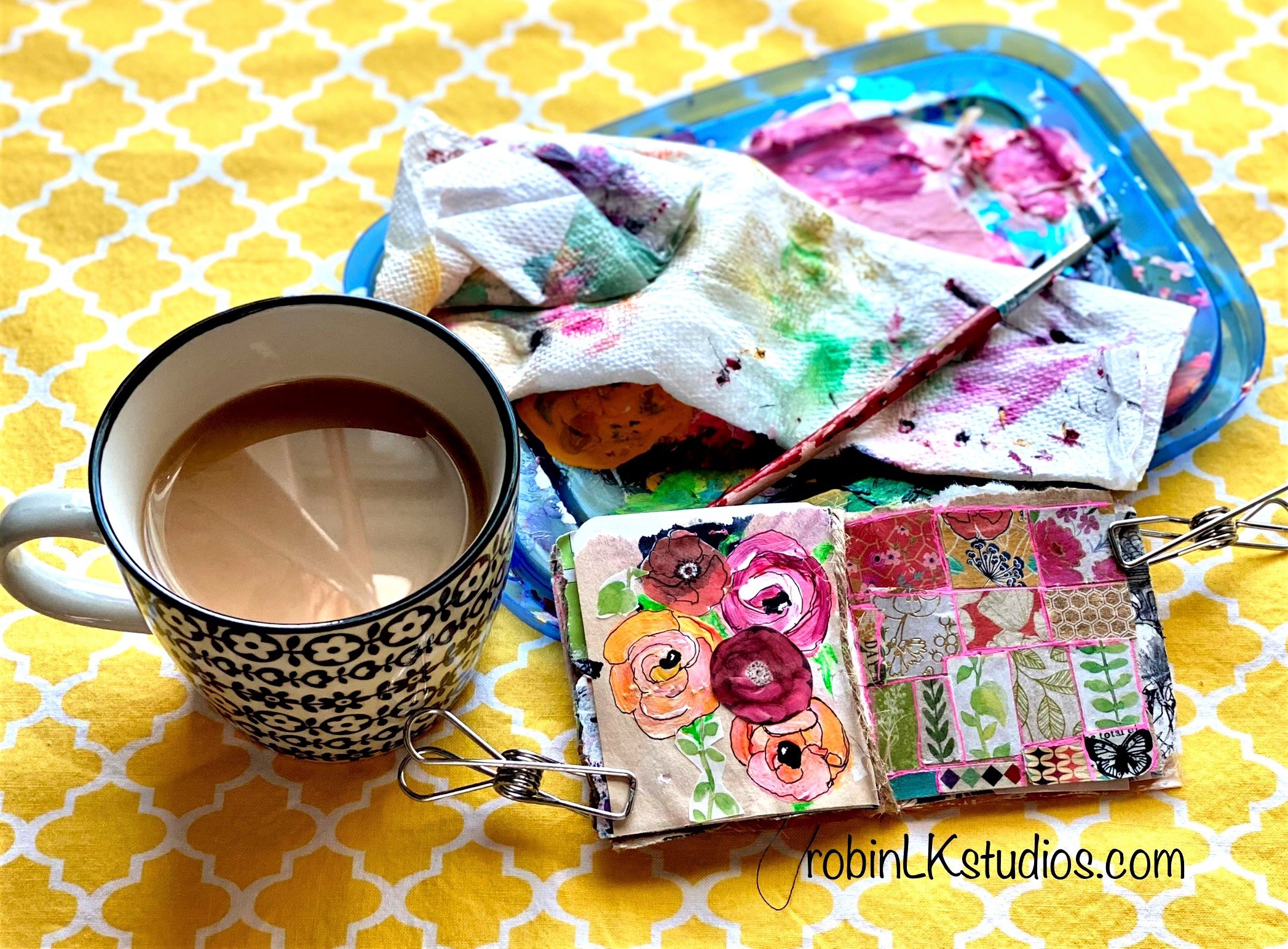
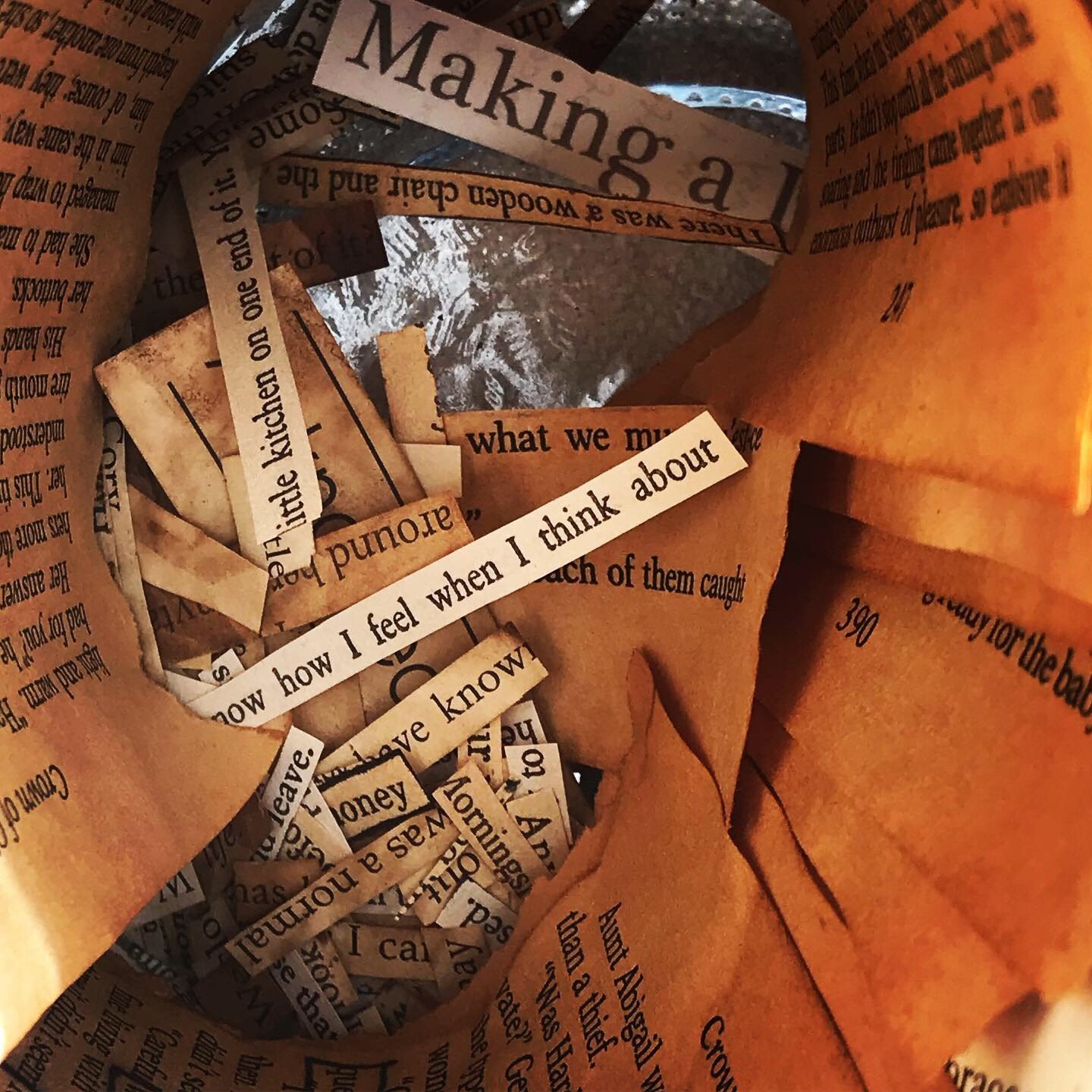
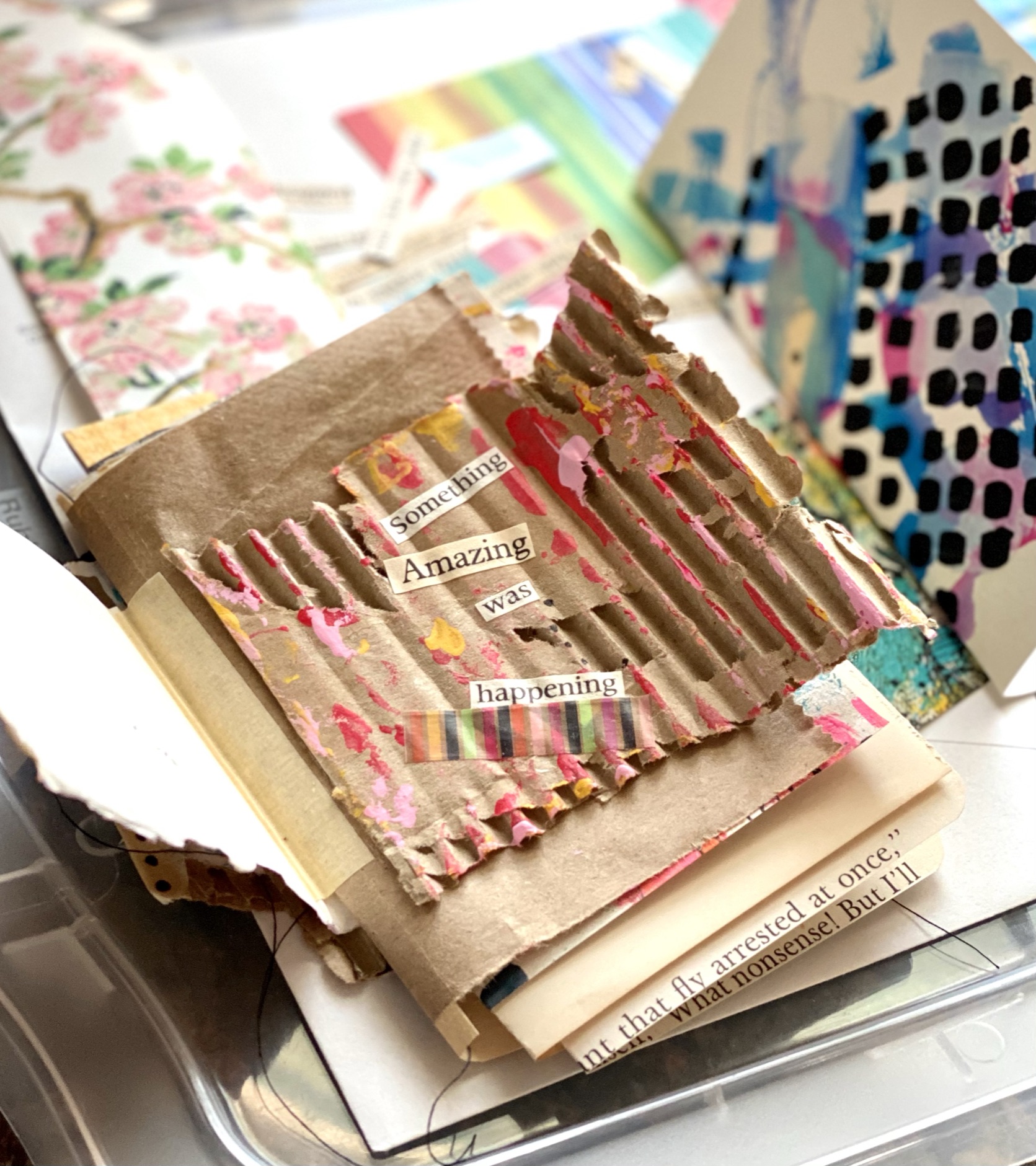

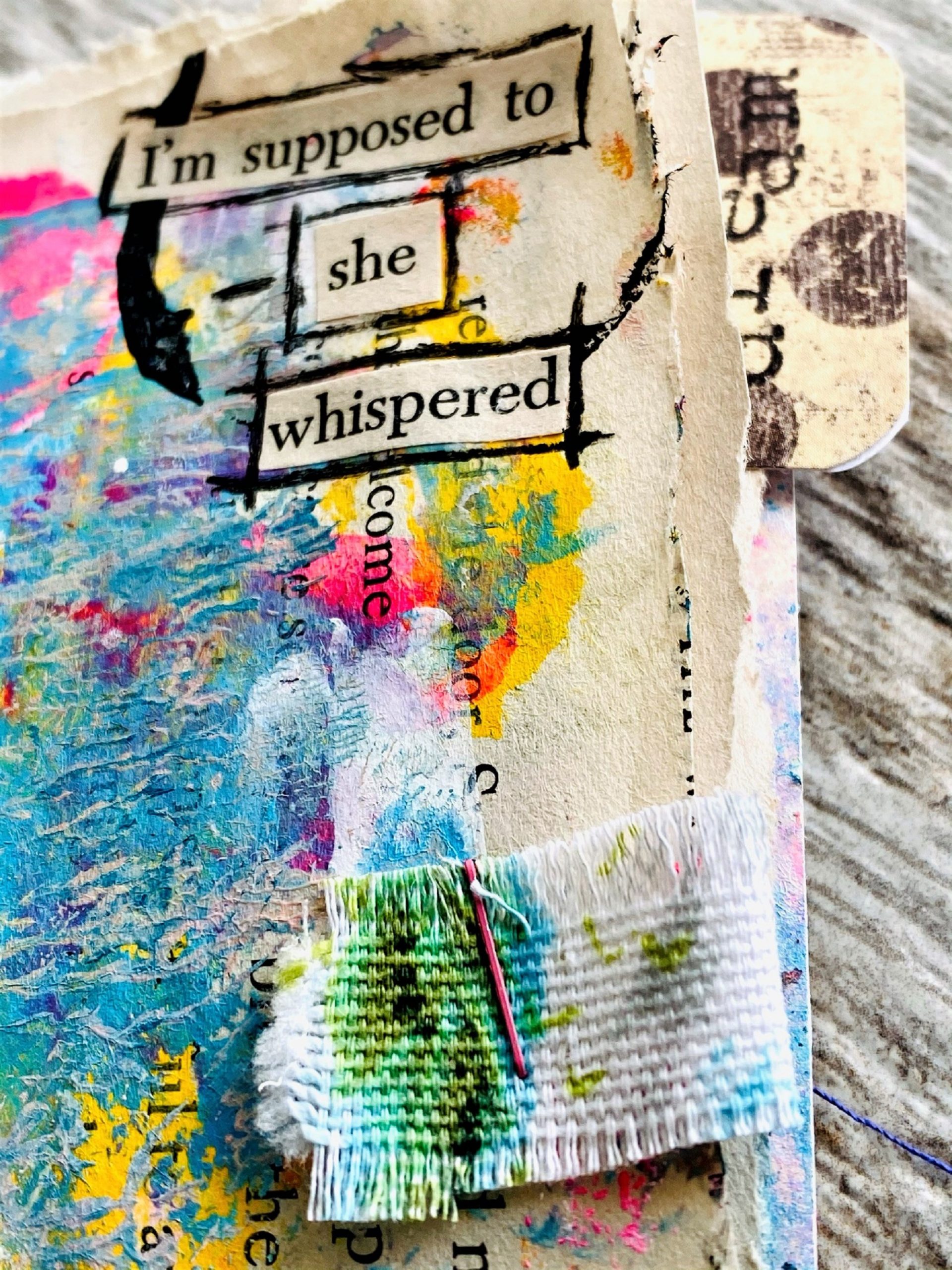

How to find ‘Found Words’ in 5 steps:
Step 1: Open a magazine, discarded book, or newspaper. Make sure you’ve got teeny-tiny, extra-sharp scissors at the ready.
Step 2: Let your eyes scan the pages.
Step 3: Notice which words your eyes land on. Don’t force it.
Step 4: Cut the words and phrases.
Stay quiet inside your head and around you. Trust the process. Let your soul have a voice. When words jump out at you, that’s your soul getting its voice.
Step 5: Get ready! It’s time to write your “story.”
Notice the words “being extra” in this pile? I’ve often been called this – directly or indirectly – and it used to annoy (and offend!) me. Can’t stop the no-filter people, right?! So when I saw the phrase in the words… Whoa! That was powerful, because I wasn’t looking for it. And… I have dozens of books and hundreds of book pages to choose from. The words found me. It was my soul saying, “Hey! I need to talk about this!”
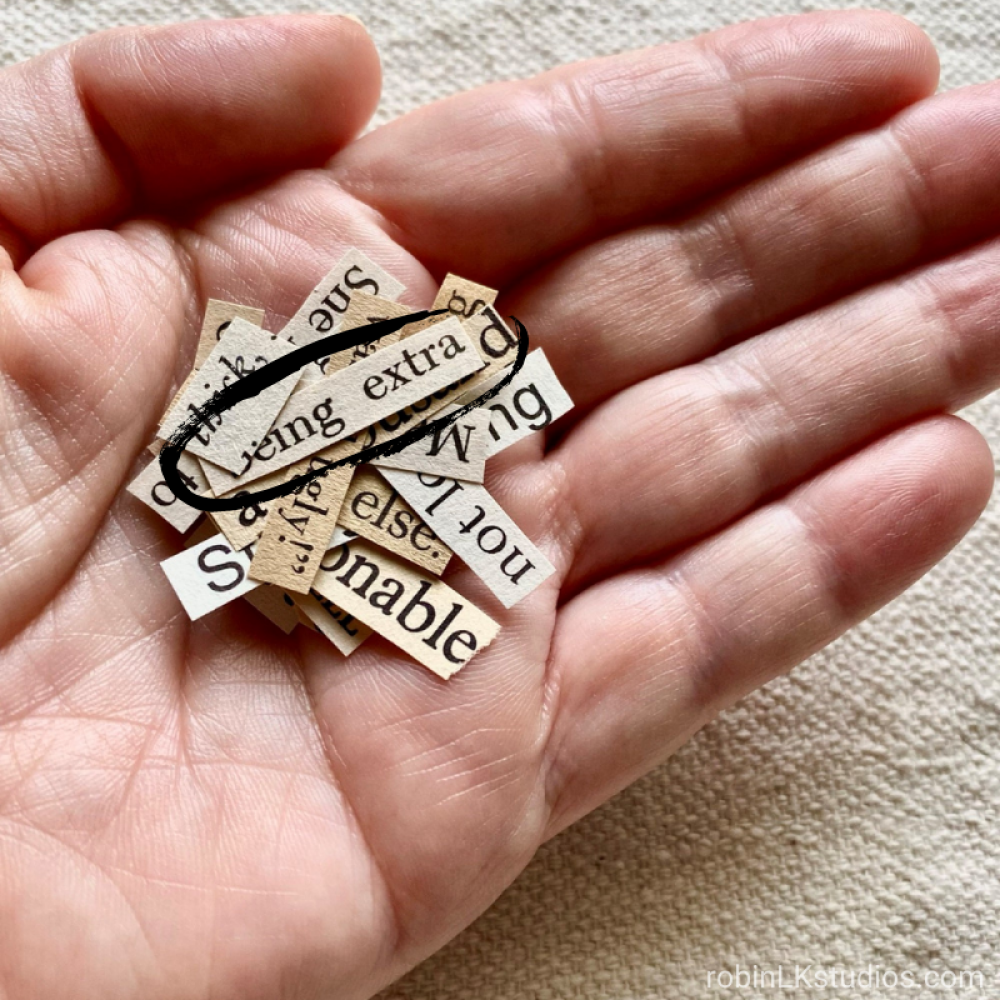
Now, I embrace “being extra.” Being north of 50 has changed my perspective and reaction to other people! Dramatically. The IDGAS effect is alive and well! 😉
How to tell your short stories in 5 steps:
Once you find the words (or… they find YOU!), it’s time to tell your story.
Step 1: Eliminate distractions.
Step 2: Choose some (or all) of the words.
Step 3: Move them around and ‘listen.’ (I know that sounds woo-woo. I’m okay with that!)
Step 4: As you’re moving them, stories will begin to emerge. (This is your soul’s voice!)
Step 5: Arrange the new words into your new story/ies and decide how you want to keep them (in art, in a journal, in a notebook, on a scrap piece of paper…)
Or, do what I do and store them for a creative break when you need one.
I have dozens of snack-size baggies, each containing a short story waiting to be shared, alongside jars of words filling my Studio, which I shared in a blog post here.
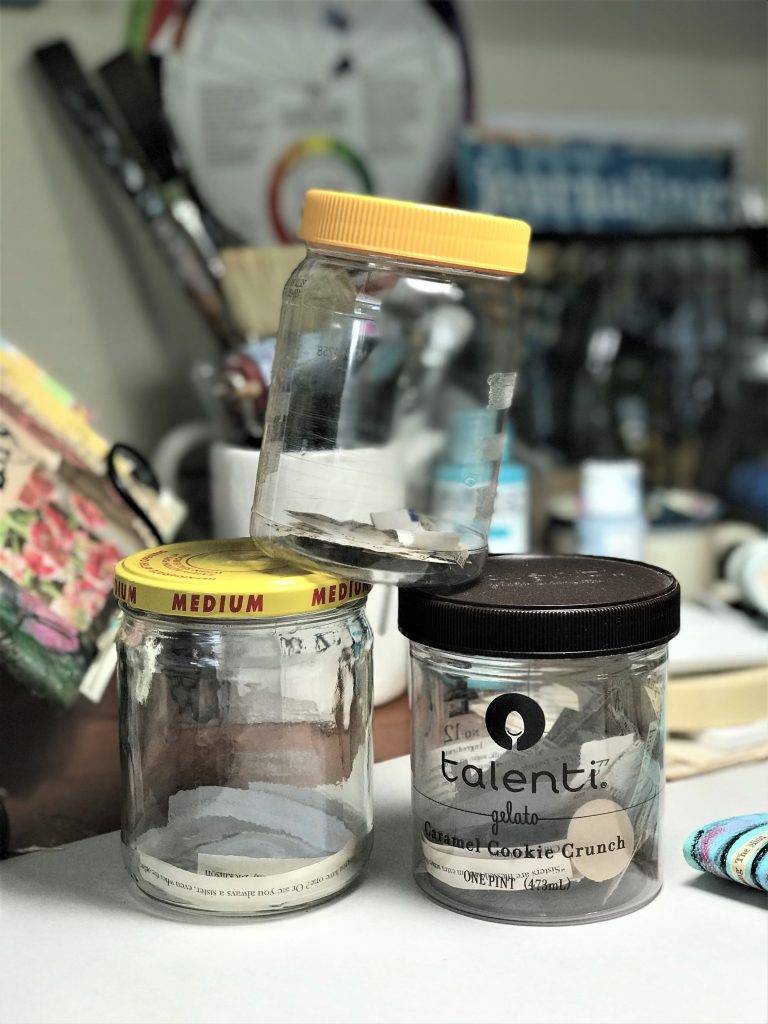
Tell your short story one ‘Found Word’ at a time
When you’re ready, that little pile of words will become a {very} short story. Or, maybe the words become the beginning of a longer story inside you….
A Little History of Found Word Poetry/Stories
Curious about the history of “Found Word” writing? (I was, years ago when I first discovered it.) Check out this (slightly academic, but interesting) library guide from Simmons College Library and Information Services. It’s described as, “A guide to the little-known but truly wonderful genre of found poetry.” Worth a click for a bit more history on the subject + resources and examples.
A quick internet search shows us an example of “found word” writing – directions for creating Dada Poetry, created in 1920 when Tristan Tzara “proposed to write a poem using random words pulled from a sack.”
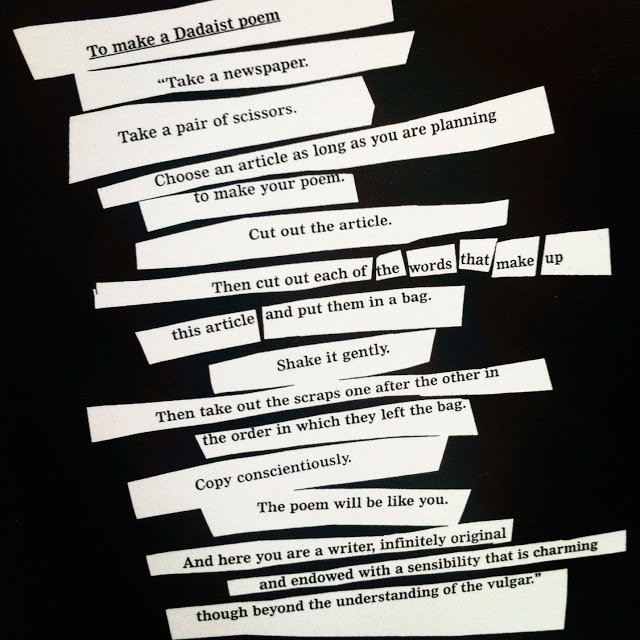
My hope? That you’ll discover what art workshop guest Diane, discovered, “Robin, thank you! I may never look at words the same way again…!” That’s my hope, Diane, that you and others will tell your story one found word at a time!
Have you written “found word” stories or poetry?
